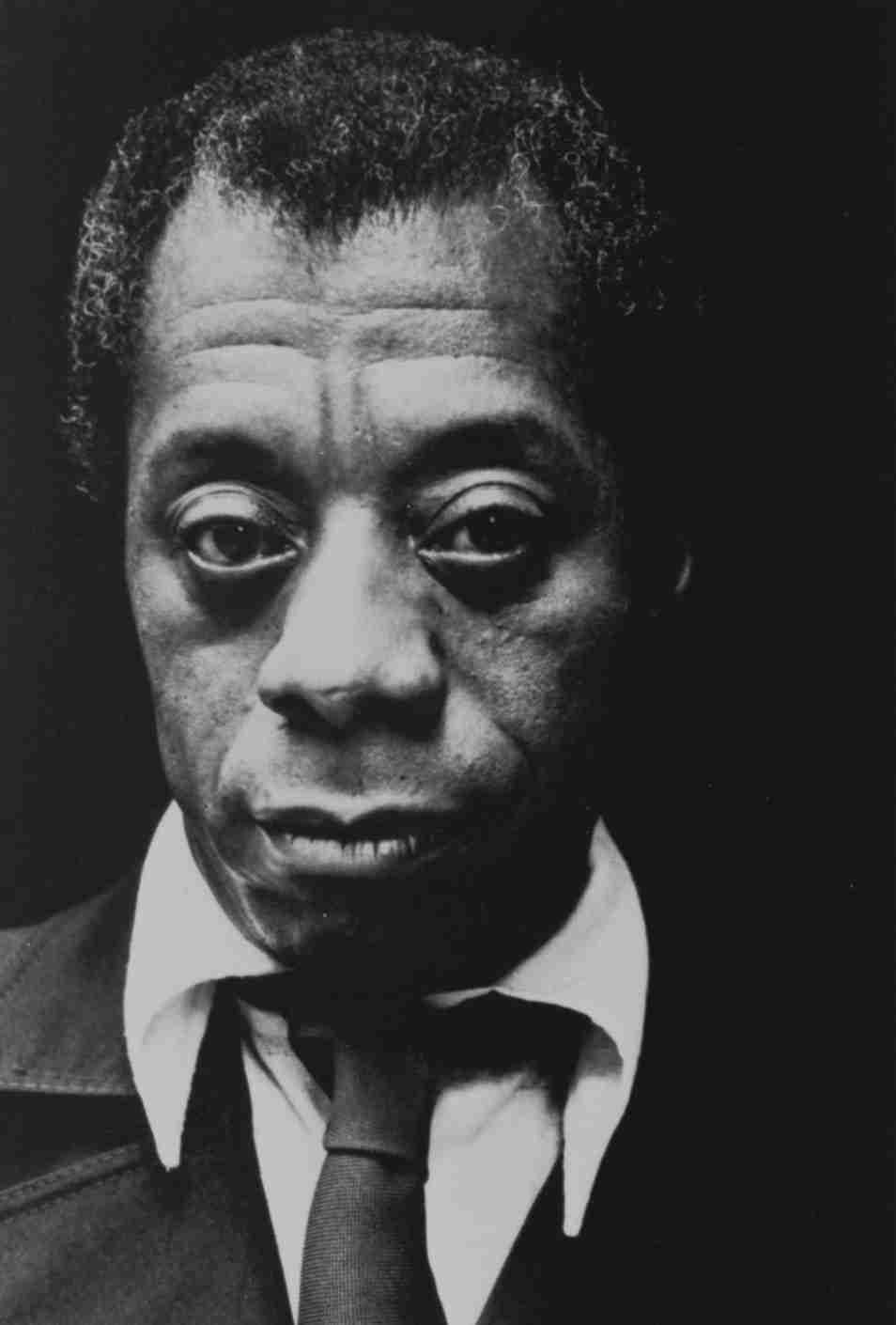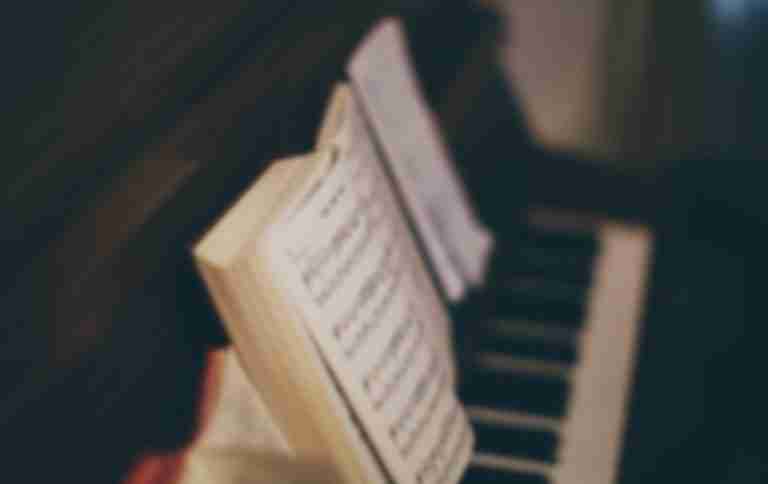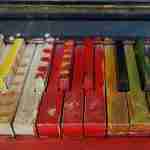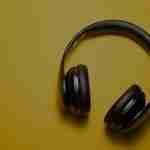Take a peek into a high school jazz band rehearsal or grab a seat at a college jazz combo concert. Better yet, walk into your local jam session or take a close look at the jazz trio playing the next time you’re at a wedding. What do you see?
In each case you’ll find the “Real Book player.”
The Real Book player is the musician that learns tunes out of a fake book, practices in front of a fake book, and performs using a fake book. Like a ball and chain, the book is always there. No book = no music.
For years I used to be a real book player. I looked at lead sheets to memorize tunes, I practiced improvisation by staring for hours at written out chord progressions, and I relied on the book like a life preserver at gig after gig.
From my perspective, this all seemed to work out just fine, however after a few years a problem slowly began to emerge. I was performing standards from a book all the time, but I wasn’t actually learning any of these tunes that I was playing night after night.
Even worse, I wasn’t improving at all as an improviser. Week after week I was basically rehashing the same old material in the same exact way without having any musical progress to show for it.
The problem was not that I wasn’t trying to improve as an improviser, it’s that I was trying to use a fake book to achieve this goal. I see many musicians unwittingly heading in this same direction – glued to the book and wondering why they’re having trouble memorizing tunes or difficulty creating solos.
Don’t let this happen to you.
Keep in mind that the book isn’t bad in and of itself (after all it’s just paper!), however knowing the “side effects” of reading out of a fake book and learning how to use it effectively is essential for every player looking to improve as an improviser and learn more tunes.
It’s easy to be a Real Book player
Take a look at it this way. When you read tunes out of a book it’s less work…a lot less work.
You don’t have to worry about memorizing all those melodies, you don’t have to spend hours next to a speaker trying to figure out chord progressions, and you can get by with a limited number of musical skills.
The attractive thing about a fake book is that it allows you to perform a tune almost instantly, all you have to do is be able to read music.
In fact you don’t even have to listen to that tune to be able to perform it. You can essentially skip all of that practice time that would otherwise be spent on listening, ear training, and transcribing and go directly to performing hundreds of tunes in front of an audience.
So why try to memorize melodies, hear chord progressions, or spend time transcribing from the record?
Why do more work when you can have it easy?
The Musical Crutch
The crux of the matter is that the Real Book is essentially a musical crutch.
It’s the trusty support that keeps you upright in any musical situation. From the outside, it appears that all is well — you’re completely in control of things, right? However, take away this safety line and you’ll quickly encounter a harsh reality. You’ll fall flat on your face, you’ll get lost, hit wrong notes, and find yourself unable to play the melody or even improvise a solo.
When you rely on a piece of paper to function as a musician you can only go so far. Especially as an improviser, you’ll find that there’s a ceiling to how well you can perform with a sheet of music in front of your face. As long as you’re reading out of the book, you’ll always be playing it safe.
It may be true that you’re not going to fall apart with the book in front of you, but you’re also never going to reach the higher levels of musical communication and freedom or realize your potential as an improviser.

“Nothing is more desirable than to be released from an affliction, but nothing is more frightening than to be divested of a crutch.”
~James Baldwin
The more you use the book, the more you’ll become dependent on it. This harmless and convenient crutch that you bring along to your rehearsals and gigs will suddenly become an unbreakable habit. You can’t perform without it, you can’t practice without it, in fact your entire ability as an improviser becomes tied to this book.
In the past, if you took the book away from me I would have an anxiety attack. How was I going to know the melody or chord progression without that piece of paper? How was I going to perform tunes from memory in front of an audience? This is the main reason why I continued to lean on this crutch in the practice room and on the bandstand. The book was covering up some big holes in my musical skill set.
Take a close look at your own playing for a moment. Are you going to be the player that is leaning on a crutch during every performance or are you going to be an improviser that’s going to know these tunes on a personal level and play with feeling?
3 Pitfalls of performing with the Real Book
When this musical crutch becomes an essential piece of your ability to practice or perform, you’re going to run into problems as an improviser. You may be able to get by right now, but if you’re not careful the fake book will stop you from developing into the musician that you one day wish to become.
Here are three major pitfalls of using a fake book:
I) Ignoring your Ears
The main problem with fake books is that they allow you to play tunes and create solos without using your ears.
When you read a melody and a chord progression off of a page, you’re essentially playing music with your eyes. As soon as you start taking in information with your eyes, your ears are going to involuntarily turn off.
This happens to everybody. Take a tune that you’ve memorized really well and try to play it with a lead sheet. Whether you want to or not, you’re going to improvise differently with that piece of music in front of you.
This is because the book forces you into an intellectual approach to music. By looking at the written notes and chord progressions you’ll automatically start thinking about which scales to play or which lines you can use over those chord progressions.
It’s like painting by numbers. You’re not actually creating something personal or artistic, rather you’re connecting the dots based on music theory — matching scales and licks with corresponding chords. The “art” of improvising becomes a cut and paste intellectual exercise.
By taking this shortcut now, you’re cheating yourself in the long run.
While it may be convenient to simply read hundreds of tunes, you are depriving yourself of one of the most important tools you have as a musician, your ears. As long as you use the book, you’re leaving your ears undeveloped. As long as you paint by numbers, you won’t truly learn how to paint.
II) You don’t really ‘Know’ the tune
When you rely on a fake book, you never get to the point where you “know” the tunes that you’re playing.
This is fine if you just want to fumble through solos, but getting to the level of great improvising requires that you know a tune inside and out. Not just memorizing a melody and sequence of chord symbols, but ingraining these sounds in your ear, knowing these progressions in your mind, and working them out on your instrument. You have to know the tune on a personal level. Without this connection to your ear, body, or musical feeling, your improvising is going to be flat and mechanical.
The extent to which you “know” a tune not only affects your ability to improvise, it also affects the impact you’ll have on the listener.
Imagine for a moment that you’re watching a movie in which every actor is reading lines from a script. Each performer is looking down at a stack of paper and not really interacting with the other actors, rather using all of their focus just to get each line out at the right time.
Now compare that to an actor that has not only memorized the script, but has actually become the character – transcending technique and the scene to use each line to deliver emotion with powerful impact.
Which movie would you rather see? I think the choice is obvious.
The choice is equally obvious when it comes to listening to a musician play from a fake book vs. a musician that is playing a tune that they have memorized and a tune that means something to them.
By relying on a fake book to perform, you’re essentially sight reading a tune every time that you play it — you’re that actor reading from a script, giving a performance that you don’t believe in.
III) Limiting the music
When you can only play the tunes in that fake book on your music stand, you’re not only putting yourself in a box musically, you’re limiting the music itself. But, what exactly does that mean?
Thousands of musicians have the Real Book and most of these musicians are using it to perform in front of audiences. As a result, every player that is using a book is limited to the same finite number of tunes contained in that book. Go to any jam session in any city and you’ll hear the same three dozen tunes performed in roughly the same way.
“Jazz” becomes this thing that sounds the same everywhere you go. It becomes a predictable background music that never really reaches an emotional or creative high point.
Because there is a mentality that being a jazz musician is rolling up to a gig with a stack of fake books and sight reading tunes at random, many musicians feel that it is ok to get by without actually learning tunes and putting something personal or original into the music. This mindset actually limits and hurts the music.
Instead of music that is created in the moment, it becomes this predictable exercise that is no different from any other group any where in the world. Quite simply, by reading tunes out of a book, you’re taking away the possibility of possibility.
3 Benefits of learning a tune by ear
Instead let’s look at what will happen if you start getting away from the book and start learning tunes by ear.
I) Improving your ear
By getting away from the fake book, you’ll not only improve your ear, you’ll actually be using it.
Your ear is the essential piece that will allow you to become a better improviser. It is the tool that helps you to identify melody lines and chord progressions and is a crucial piece in memorizing new tunes and figuring out those that you don’t know. When it comes to your ear, the old adage is true: If you don’t use it, you lose it.
When you strive to use and improve your ear, eventually you won’t need a book to navigate a tune. You’ll be able to hear the individual pieces of a tune and come up with lines to play that you’re actually hearing in your head. More importantly, you’ll be able to focus on and understand the sound of the music that’s happening around you. This is the goal of every great improviser.
Remember, every time that you take your eyes away from the music, your ears will be tested. The next time you find yourself reading a standard from a fake book, put down the book and put your ears to the test.
II) Knowing a tune intellectually and aurally fosters creativity
Creativity is dependent upon a certain level of proficiency and freedom.
If you’re still struggling with instrumental fundamentals and the basics of music theory, it’s going to be hard to be creative and spontaneous. Likewise, when you look at a page and process that information you aren’t free to focus on creating, you’re simply reproducing notes from a page and inserting corresponding scales and licks.
Getting away from the book will free you up musically. When you have a tune in your ear and you know it in your mind you’ll be able to focus on creative aspects of playing, not just the technical aspects. You can concentrate on sending a musical message to the audience and creating music in the moment instead of just “getting by.”
III) Listening and interacting when you perform
One common theme that you see with players or groups that use books to perform is that everyone ends up staring at the book. Every player is in their own world and focusing on their own part. They’re all playing at the same time, yet no one is playing together. As a result there is little to no musical communication within the group.
Not exactly an inspiring performance.
By freeing yourself from the book, you’ll be able to start listening to the other players around you. Moments will happen in the music that were not planned, and the audience will notice this. You’ll open yourself up to the magic that happens when two or more players improvise together in the moment.
How you should use the Real Book
On your journey as an improviser it’s inevitable that at some point you’ll have to read out of a fake book. This is OK. The Real Book itself isn’t necessarily a bad thing, it’s the way you use it that will either aid or limit your playing.
Do’s and Don’ts for Fake Books
- Do use a book as a reference when you are starting to learn how to improvise, when you don’t know any tunes, and when you haven’t worked on ear training.
- Do use a fake book when you don’t know a tune that you have to perform on the spot
- Do use the book as an occasional reference along with the recording in your practice
- Do use a fake book to double check the material you’re learning by ear (*Note that fake books often contains mistakes, wrong melody notes, or incorrect chord progressions. Always check out multiple recordings when you are learning a standard.)
- Don’t read or perform a tune from a fake book without listening to it first.
- Don’t use a fake book as a substitute for learning tunes from the recording.
- Don’t perform standards with a real book (as much as possible).
- Don’t use a fake book to perform when you know your set list ahead of time and have time to prepare.
- Don’t become complacent with or dependent on the fake book. You should always be striving to memorize and learn new tunes. The fake book should be a temporary aid, not a vital piece of your musicianship.
Getting away from the book
If you use the Real Book now it’s OK.
After all you still want to be able to play gigs and have jam sessions with other musicians, and this means playing tunes that you don’t know. Using a book is fine for now in these situations.
The important thing to understand is that the book is allowing you to skip over some essential parts of your musicianship. If you continue to rely on these written notes and chord progressions, you’re going to pay for it down the road.
You’re not going to get rid of the fake book overnight, however if you start taking some steps now you’ll be able to start performing repertoire that you know by heart.
- Make Ear Training part of your daily routine. The more that you take in information with your ears, the easier it will be to learn tunes from the record and hear
- Focus on repertoire and key tunes in your daily practice. If you don’t devote any of your practice time to learning tunes, you’re not just going to magically learn tunes. The reason most players use a book is that they don’t know a lot of tunes. Make sure you are learning or working on at least one tune each week. It may not seem like a lot, but it will add up quickly – in the space of a few months you’ll be able to play an entire set or two from memory.
- Start by making it a goal to perform one (or more) tunes from memory every time you perform or go to a jam session. Reading out of a book is easier and safer, but take a chance — it’s the only way you’ll improve.
Remember that the book is like a pair of training wheels for your improvising, it allows you to perform a number of tunes quickly without mastering some essential skills that you need as an improviser. If you never take these training wheels off, you’ll never develop the skills you need to become a successful improviser.
Getting away from the book is not going to be easy at first. You’ll have to come to terms with the fact that you only might know one or two or a dozen tunes instead of the hundreds you can read out of the book. However, the skills that you’ll develop in learning by ear will transform your musicianship. More importantly, you’ll find that you ability to improvise will greatly improve from this process.
Remember you are the source of your musicality — you are your own instrument. The music should be coming from within yourself, not from an external source.
If you have any doubts about this, you only have to look at the greatest improvisers as they are playing standards…Do you see a book anywhere in sight?










